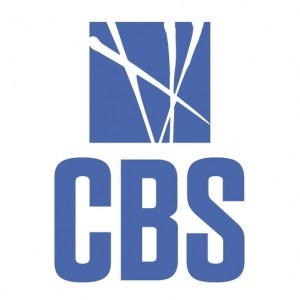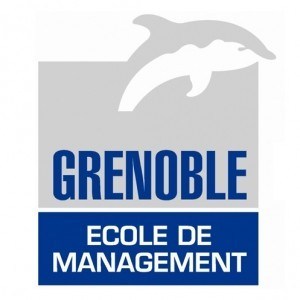Photos of university / #university_of_copenhagen
The MSc in Agricultural Development at the University of Copenhagen is a comprehensive program designed to prepare students for innovative and sustainable solutions in the field of agricultural development. This interdisciplinary programme combines insights from economics, social sciences, environmental science, and agricultural technology to address the complex challenges faced by rural communities, farmers, and policymakers worldwide. Students will engage in both theoretical and practical learning, gaining a thorough understanding of agricultural systems, rural development policies, food security, and sustainable resource management. The program emphasizes critical thinking, research skills, and problem-solving abilities to enable graduates to contribute effectively to agricultural innovation, policy formulation, and development projects. Throughout the course, students will explore topics such as agricultural economics, project planning and management, international development, environmental impact assessments, and the role of technology in modern agriculture. The curriculum is designed to promote a multidisciplinary perspective, encouraging students to analyze issues from economic, social, and ecological viewpoints. Teaching methods include lectures, seminars, case studies, group projects, and field visits, providing students with hands-on experience and real-world insights. The program also offers opportunities for international experience and collaboration, preparing students to work in global contexts. Graduates of this programme are well-equipped for careers in development agencies, NGOs, governmental organizations, consultancy firms, and international organizations focused on rural and agricultural development. They will possess the skills necessary to develop sustainable agricultural policies, design development projects, conduct impact assessments, and promote innovations that support food security and rural prosperity. The MSc in Agricultural Development at the University of Copenhagen aims to empower students to make a positive impact on agricultural practices and rural livelihoods worldwide, contributing to the sustainable development goals and addressing the pressing challenges related to food security, climate change, and resource conservation.
The Master’s degree programme in Agricultural Development at the University of Copenhagen offers a comprehensive and interdisciplinary education designed to prepare students for addressing the complex challenges facing agriculture and rural development in a global context. The programme emphasizes sustainable development, innovation, and the integration of scientific knowledge with practical applications to improve agricultural productivity, environmental sustainability, and social well-being in developing and transition countries. Throughout the programme, students will explore key topics such as agricultural policy, rural livelihoods, resource management, climate change adaptation, food security, and rural entrepreneurship. The curriculum combines theoretical coursework with hands-on research projects, fieldwork, and collaboration with international organizations, enabling students to gain practical experience and develop skills necessary for leadership roles in development agencies, NGOs, research institutions, and governmental bodies. Students will have the opportunity to specialize in areas such as agricultural economics, natural resource management, or social development, tailoring their studies to their career interests. The programme employs an interdisciplinary approach, integrating insights from agronomy, economics, sociology, and environmental science to foster a holistic understanding of agricultural development issues. Graduates will be equipped to design, analyze, and implement policies and projects that promote sustainable and equitable development in agricultural sectors worldwide. The programme also encourages critical thinking, policy analysis, and innovative problem-solving strategies, preparing students to contribute effectively to policy formulation, development cooperation, and research initiatives globally. With a strong network of international partnerships and an emphasis on experiential learning, the programme prepares students to make a meaningful impact in improving agricultural systems and rural livelihoods for a sustainable future.
Program requirements for the Master's degree in Agricultural Development at the University of Copenhagen typically include a Bachelor's degree or equivalent in a relevant field such as agriculture, development studies, environmental science, or related areas. Applicants are expected to demonstrate a solid academic background with relevant coursework and practical experience related to agricultural systems, development practices, and sustainability issues. Proficiency in English is mandatory, usually demonstrated through standardized tests such as TOEFL or IELTS, with minimum score requirements specified by the university. Additionally, applicants must submit a motivational letter explaining their interest in the program and how their background aligns with the degree objectives. Some programs may require relevant work experience or internships in agricultural development or related sectors to enhance the application profile. Academic transcripts from previous studies must be provided, showcasing competence in key subjects. Reference letters from previous educators or employers can also strengthen an application. The program may have a limited number of spots, meaning selection criteria consider academic performance, motivation, relevant experience, and potential contributions to the field of agricultural development. There may be specific prerequisites regarding knowledge of statistics, research methods, or related disciplines, and applicants might be advised to meet these before admission to ensure success in the coursework. Some programs encourage or require applicants to submit a research proposal or express their research interests as part of the application process. Additional requirements such as interviews or assessments can vary depending on the year and intake period. The program aims to equip students with the necessary theoretical knowledge and practical skills to address complex challenges in agricultural development, sustainability, and food security. Applicants are recommended to consult the university's official admissions webpage for the most current and detailed information, as requirements can change over time and may differ based on applicant background and nationality.
Financing of the Agricultural Development program at the University of Copenhagen is primarily supported through a combination of public funding, scholarships, and student loans. The university offers a range of scholarship opportunities for international students, including the Danish Government Scholarships and Erasmus+ grants, which can significantly offset tuition fees and living expenses. Danish students often benefit from state-funded financial aid schemes such as SU (Statens Uddannelsesstøtte), which provides monthly stipends for those enrolled in full-time studies. Additionally, the program may be eligible for funding through European Union initiatives aimed at promoting sustainable agricultural development and innovation. Students are encouraged to explore external funding sources such as private foundations, international development agencies, and research grants that support agricultural and environmental sciences. The university's careers service also provides guidance on part-time employment opportunities available during studies, which can help students manage their finances effectively. Tuition fees for international students vary depending on their home country but are generally competitive relative to similar programs across Europe. Domestic students typically pay lower or no tuition fees due to Danish education funding policies. Overall, financing options are designed to make the program accessible to a diverse student body, ensuring that financial barriers do not hinder prospective students from pursuing their academic and professional goals in agricultural development.
The Master's programme in Agricultural Development at the University of Copenhagen is a comprehensive and interdisciplinary program designed to address the complex challenges facing agriculture and rural development worldwide. This programme equips students with a thorough understanding of the socio-economic, environmental, and technological factors that influence agricultural productivity and sustainability. It combines theoretical knowledge with practical skills, preparing graduates for careers in development cooperation, research, consultancy, and policymaking related to agriculture and rural development.
The curriculum covers key themes such as agricultural policy analysis, sustainable resource management, rural livelihood strategies, food security, climate change impacts, and agricultural innovation. Students engage in core courses that provide a solid foundation in development theories, research methods, and project management. Elective courses allow specialization in areas such as agroecology, gender in development, or market development.
The programme also emphasizes fieldwork and real-world projects, enabling students to apply their knowledge in practical settings. Students have opportunities to participate in field visits, internships, and collaborative projects with NGOs, government agencies, and private sector actors. The international environment of the University fosters a collaborative learning atmosphere, encouraging students to develop multicultural and interdisciplinary perspectives.
Graduates of the Agricultural Development programme are well-prepared to contribute to sustainable development initiatives at national and international levels. They possess analytical skills necessary for designing and evaluating development projects, formulating policies, and conducting research. The programme also provides a strong foundation for further academic pursuits, including PhD studies.
Overall, the Master's in Agricultural Development at the University of Copenhagen aims to cultivate knowledgeable, skilled, and motivated professionals dedicated to promoting sustainable agricultural practices and improving rural livelihoods across the globe. The programme’s duration is typically two years, with a balanced mix of coursework, fieldwork, and thesis research. The university’s reputation for research excellence and its commitment to sustainability make it an ideal place for students interested in making a difference in agricultural development and environmental sustainability.








